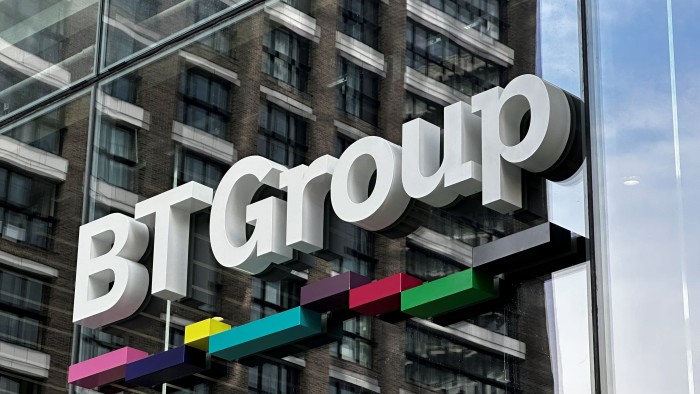Unlock the Editor’s Digest for free
Roula Khalaf, Editor of the FT, selects her favourite stories in this weekly newsletter.
Telecoms operator BT has fought off a £1.3bn legal claim that it overcharged about 3.7mn landline customers in the UK, the latest setback for claimants bringing a new breed of class-action lawsuit.
In the first ruling of its kind, the Competition Appeal Tribunal on Thursday found in BT’s favour after the former monopoly was accused of using a dominant market position in landlines to charge customers, many of them elderly, “unfair” prices.
The judgment comes two weeks after payments company Mastercard reached an agreement in principle worth about £200mn to settle a claim that it imposed unfairly high fees on card transactions — a fraction of the £10bn the claimants had been seeking.
The claims against BT and Mastercard were being closely watched as tests of a new regime of collective legal action in the UK. The BT case, financed by Harbour Litigation Funding and fronted by former Ofcom official Justin Le Patourel, was the first of its kind to go to trial earlier this year.
Legislation in 2015 allowed collective legal actions to be brought in the UK over alleged breaches of competition law on an “opt-out basis”, under which consumers are automatically included unless they state they do not want to take part. However, while a plethora of claims have been brought against companies including Apple, Alphabet and Sony, cases have been held up by protracted legal arguments over process.
Antitrust lawyers — and the litigation funding industry that backs the cases — are scrutinising early judgments and settlements as they try to assess the prospects of success for other claims.
The CAT found that while BT’s prices were “excessive”, this did not amount to them being “unfair”. The claim failed as there was “no abuse of dominant position”.
Le Patourel said in a statement he was “pleased” the tribunal found “BT was a dominant operator which charged excessive prices to its loyal customers”.
However, he added: “I am disappointed that the tribunal did not ultimately find in our favour on the question of whether BT’s prices were unfair. We will now carefully consider the tribunal’s reasoning and the prospects for an appeal.”
Tim West, a dispute resolution partner at law firm Ashurst, who was not involved in the case, said: “The disappointment may be felt more broadly by class representatives in other opt-out collective actions in the CAT and by the funders of those cases.”
He added: “It is unlikely that this will spell the end of the collective action regime. That said, it likely to have a dampening effect, at least in the short term, on the availability of capital to fund the more novel or unusual claims in the CAT.”
The claim against BT followed a review by communications regulator Ofcom in 2017 that provisionally concluded the company held “significant market power” in the standalone landline market, and proposed price controls.
In response, BT voluntarily committed to cut landline prices by £7 per month from April 2018.
In the lawsuit, the claimants argued that the price reduction failed to compensate customers adequately.
However, the CAT on Thursday said it did not give “material weight” to Ofcom’s findings. The tribunal said it had been presented with “a very substantial body of expert evidence based on far more data” than had been available to the regulator.
BT did not accept that its pricing was anti-competitive, and said the claim related to a “technical” landline pricing issue that was “resolved by Ofcom in 2017”.
In a statement on Thursday the company said it welcomed the ruling, adding that it took “responsibilities to all of our customers very seriously”.
Read the full article here

